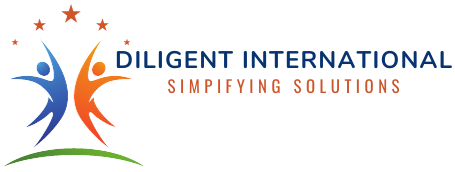The advent of artificial intelligence (AI) has ushered in a new era of innovation and transformation across various sectors, and the field of recruitment is no exception. As the hunt for talent becomes increasingly competitive, companies are looking for more innovative, efficient ways to source, screen, and select candidates. Here’s a look at the myriad ways AI is reshaping the recruitment landscape:
- Efficient Candidate Screening: Gone are the days when HR professionals had to manually sift through hundreds, if not thousands, of resumes. AI-powered systems can quickly scan and filter applications based on predetermined criteria, ensuring only the most suitable candidates move forward. This saves time and reduces human biases that can creep into the selection process.
- Predictive Analytics: With AI, recruiters can better predict a candidate’s success in a role. By analyzing vast amounts of data, from past employment history to performance metrics, AI can give insights into how well a candidate might fit into a company’s culture and how they might perform in the future.
- Enhanced Candidate Experience: Chatbots and AI-driven communication tools have transformed the initial stages of recruitment. Candidates can now get immediate responses to their queries, schedule interviews, and even receive updates on their application status, leading to a smoother and more engaging candidate experience.
- Automated Interview Scheduling: Coordinating schedules between candidates, hiring managers, and recruiters can be a logistical nightmare. AI-powered tools can automate this process by analyzing availability and proposing optimal time slots, reducing back-and-forth emails and potential delays.
- Video Interview Analysis: Some advanced platforms can analyze video interviews, assessing a candidate’s speech, body language, and tone to gauge their suitability for a role. This provides an additional layer of information, helping recruiters make more informed decisions.
- Diversity and Inclusion: AI has the potential to minimize unconscious bias in recruitment. By stripping away identifiers like names, gender, or ethnicity from applications and using neutral algorithms, organizations can focus solely on a candidate’s qualifications, promoting a more diverse and inclusive workforce.
- Talent Pool Analysis: AI can help companies analyze and categorize their existing talent pools. By understanding their current employees’ skills, experiences, and aspirations, organizations can identify potential internal candidates for new roles before looking externally.
- Job Ad Optimization: AI tools can analyze vast amounts of data to determine which job descriptions, ad placements, and ad designs are most effective. This allows companies to optimize their recruitment advertising strategies, ensuring they attract the right talent.
- Continuous Learning: As AI systems are exposed to more data and scenarios, they can continuously refine their algorithms. This means that the recruitment processes become even more efficient and effective over time.
- Global Talent Search: With AI’s ability to quickly analyze large datasets, companies can expand their talent searches globally, ensuring they’re tapping into a diverse pool of candidates from all over the world.
While AI is proving to be a game-changer in recruitment, it’s essential to remember that human touch remains invaluable. Machines cannot fully replicate the emotional intelligence, intuition, and interpersonal skills that human recruiters bring to the table. As such, the future of recruitment lies in a symbiotic relationship between AI and human expertise, leveraging the strengths of both to create a more efficient, inclusive, and effective recruitment process.



Hi, this is a comment.
To get started with moderating, editing, and deleting comments, please visit the Comments screen in the dashboard.
Commenter avatars come from Gravatar.